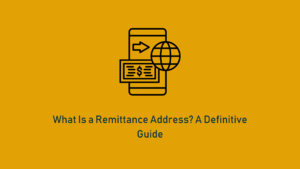Many small business owners believe they have complete freedom to take money from a limited company’s profits. After all, the company is yours and you are not required to answer to anyone. You own everything the company owns, and you can use it whenever and wherever you want. If you are a startup owner in this category, you will soon find yourself in serious trouble.
A limited company is a separate legal entity from its owners. It is endowed with both rights and responsibilities. Unlike a sole proprietorship, you will never own your company’s assets, profits, or liabilities if you register it as a limited company with Companies House. They are the company’s property. As a result, you won’t be able to freely dip your hands into the company’s profits or asset base.
If you own a limited company, there are four legal ways to withdraw funds from the company’s bank account. You must, however, follow specific procedures. Furthermore, either of these is only legal if you do not take more than the company’s net profit.
Salary of a Director
Directors, like the rest of the staff, are essentially considered company employees. While you may be a shareholder in the company, you have the option of paying yourself a monthly salary. You must, however, register for Self-Assessment. Furthermore, the company must register as an employer with HM Revenue and Customs. The firm must deduct National Insurance Contributions and income tax from the amount you receive from the business in the form of salary and remit it to HMRC on a regular basis.
You can choose to avoid personal tax liability but still qualify pension and other benefits by paying yourself the amount that is below taxable income but within the NIC primary threshold. If you are also a shareholder in the company, you can as well take additional income in the form of dividends.
Loans to Directors
If you require additional funds in addition to your salary and dividends, you can obtain a director’s loan from the company’s bank account. You must, however, ensure that the process is carried out correctly. It must be recorded and reconciled in the director’s account. It is an excellent choice if your director’s account is in good standing. Having a director’s account is a good way to run a business. It is not only a tax-efficient way of borrowing money from your business, but it also allows you to lend your business when needed.
Dividends
Dividends are usually paid to shareholders as a percentage of net profit. Before paying dividends, the company must deduct costs, taxes, and expenses. In fact, paying dividends when the company has made no profits is illegal. If you choose to receive money from the company in the form of dividends, you will be taxed. Dividends can be a tax burden for a business if they are not carefully monitored
Expenses for the Company
Another way to get money from a limited company is to claim business expenses that you paid for out of your own pocket. Mileage, training fees, business travel, and office equipment are examples of these. You must provide receipts and fill out claim forms to do so. Furthermore, such payments must be recorded in the expense account and receipts must be kept for a minimum of six years.
Do you want to borrow money from your limited company but don’t know what the tax implications are? Allow us to assist you. FBS Accountants has everything you need to help you with various business decisions, such as business registration, Paye registration threshold, and accounting services. Give us a call right now and we’ll address all of your concerns.
For more information about FBS Chartered Accountants, get in contact today call: 0204 526 5195 or drop us a line hello@finchleybusiness.co.uk








